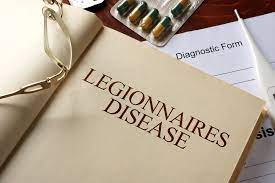On September 11, 2001, the United States experienced one of the most devastating terrorist attacks in its history, as hijacked planes were flown into the World Trade Center towers and the Pentagon. The tragic events of that day led to a temporary suspension of air travel across the country. However, just two days later, on September 13, 2001, air travel in the U.S. began to slowly restart, marking a significant step towards recovery and resilience.
The decision to resume air travel so soon after the attacks was not an easy one. The nation was still reeling from the shock and devastation caused by the events of September 11. Security concerns were paramount, and measures needed to be put in place to ensure the safety of passengers and crew.
The Federal Aviation Administration (FAA) worked diligently to develop new security protocols and procedures in response to the attacks. Enhanced security measures included stricter passenger screening, reinforced cockpit doors, increased air marshal presence, and improved communication and coordination between airlines and law enforcement agencies.
The resumption of air travel on September 13, 2001, was a symbol of resilience and determination. It showed that despite the devastating impact of the attacks, the country was committed to moving forward and not allowing fear to paralyze it. The restart of air travel was a significant step towards restoring a sense of normalcy and rebuilding trust in the aviation industry.
However, the process of restarting air travel was not without its challenges. Many passengers were understandably apprehensive about flying so soon after the attacks. Airlines faced significant financial losses due to decreased demand and increased security costs. The aviation industry as a whole had to undergo a period of adjustment and adaptation to the new security measures and regulations.
In the months and years following the resumption of air travel, the aviation industry underwent significant changes. The Transportation Security Administration (TSA) was established in November 2001 to oversee airport security and implement the new security measures. Passengers became accustomed to longer wait times, increased scrutiny, and stricter baggage restrictions.
The events of September 11, 2001, also prompted a reevaluation of international security cooperation and intelligence sharing. The U.S. government worked closely with international partners to enhance aviation security measures globally, leading to the implementation of standardized security protocols across many countries.
The resumption of air travel on September 13, 2001, served as a turning point in the healing process for the nation. It demonstrated the resilience of the American people and their determination to overcome adversity. It also highlighted the importance of security and the need for continuous vigilance in the face of evolving threats.
Today, air travel has become an essential part of modern life, connecting people and cultures across the globe. The events of September 11, 2001, forever changed the aviation industry, leading to a renewed focus on security and safety. The resumption of air travel on September 13, 2001, represented a significant milestone in the nation's recovery and marked the beginning of a new era in aviation security.






